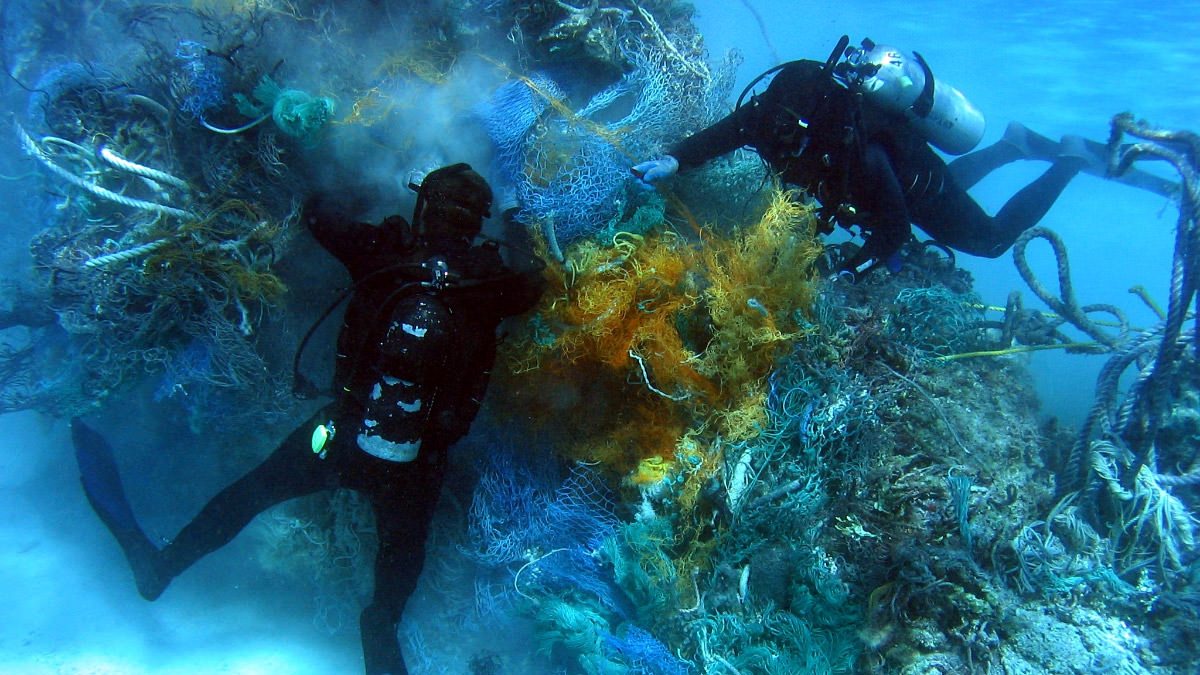Marine Debris
National Issue
Marine debris is defined as any persistent, manufactured or processed solid material that is directly or indirectly, intentionally or unintentionally, disposed of or abandoned in the marine environment. It can include a wide variety of objects (e.g., construction material, derelict fishing gear, lost vessel cargo, plastics) from multiple sources (e.g., storm water runoff, landfills, rivers, recreational and commercial activities). Collectively, marine debris threatens the marine environment and resources, human health, and safe navigation. Ingestion and entanglement of marine debris may lead to death in animals like turtles, marine mammals, birds and benthic organisms. Entanglement may result in drowning, starvation, physical trauma, systemic infections or increased susceptibility to other threats such as ship strikes. Further, marine debris can alter the structure of habitats, and if left in the ocean, lost or discarded fishing gear continues catching and killing fish (“ghost fishing”) for years.
Every national marine sanctuary, including those in isolated locations, faces challenges with respect to managing impacts from marine debris, and the issue stands as one of the most prevalent across the system. Efforts to address these challenges vary among sanctuaries and can include focused surveys to better understand distribution and abundance of debris, removal and mitigation efforts (e.g., beach clean-ups, “ghost gear” removal), and targeted education and outreach programs to highlight the importance of community involvement and personal action. None of these efforts is considered a comprehensive solution, but each represents an effective step to mitigate impacts. Uniformly, sanctuaries consider it critically important to develop partnerships with local, state, territorial and federal agencies to leverage resources and create opportunities for volunteers and citizen scientists to contribute time and expertise to this issue.


